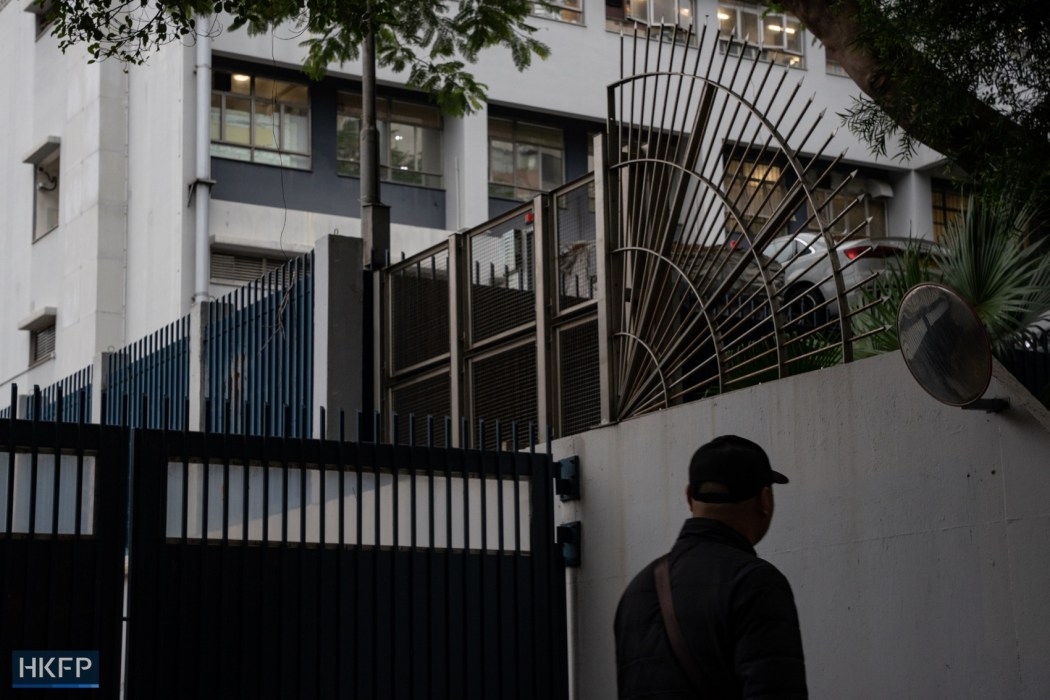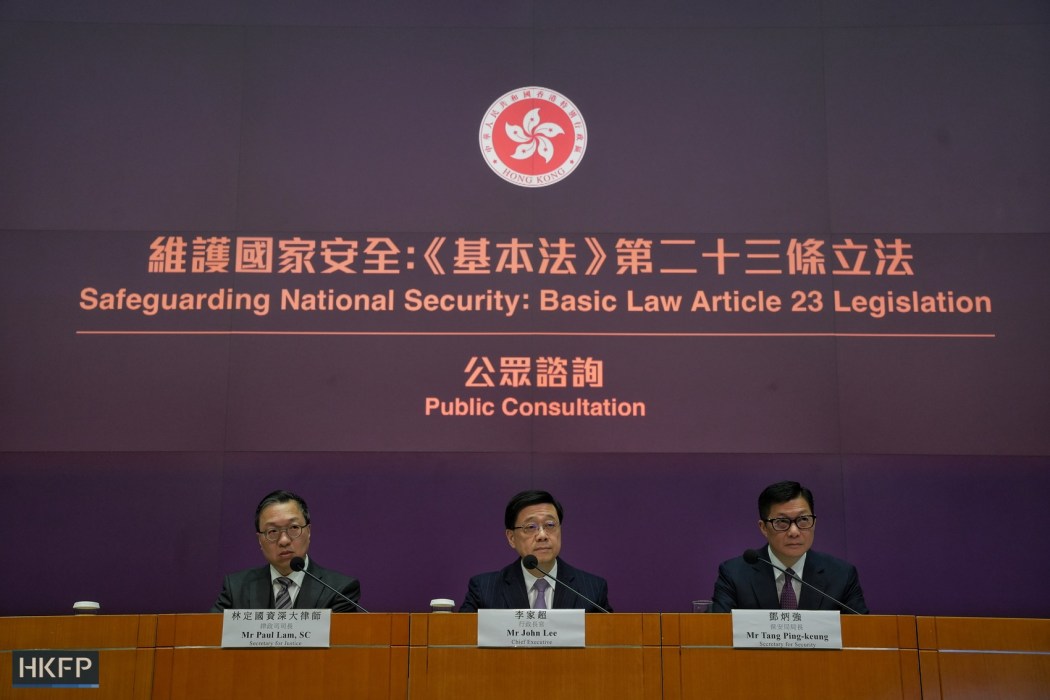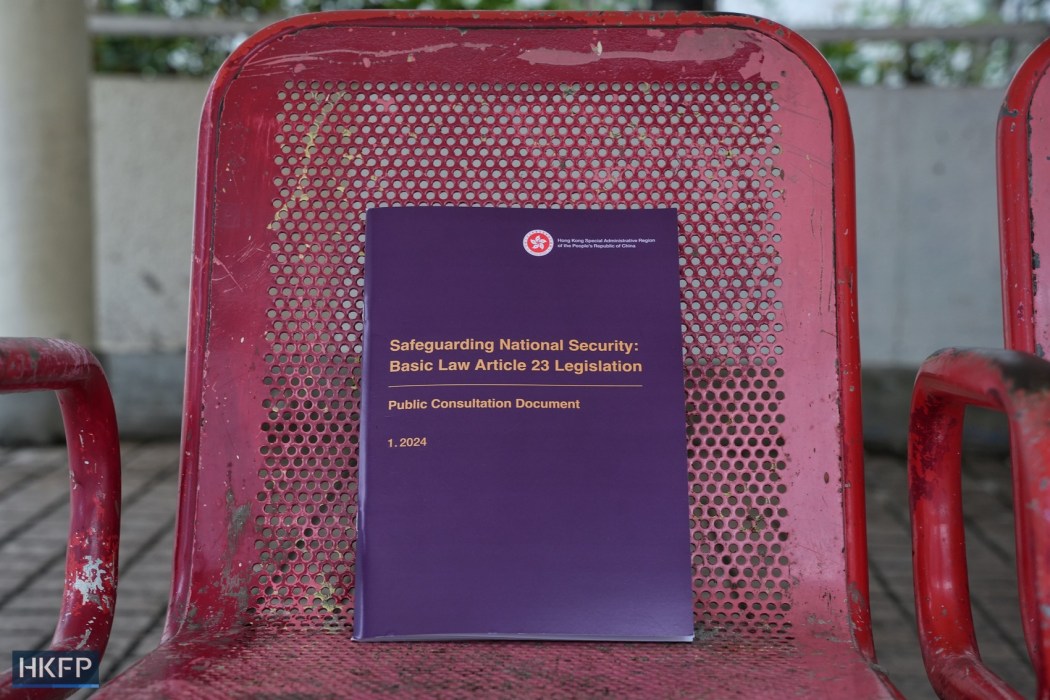The Hong Kong government has said it was considering giving police a new power to detain those arrested under a proposed new security law for up to 14 days.
In a paper submitted to the Legislative Council on Wednesday summarising views on its proposed security legislation, the government said it was considering extending the period it could detain someone arrested on suspicion of breaching that law without charging them to up to 14 days after the initial 48-hours detention had expired.

The power of further detaining arrestees should be granted by a magistrate, the document states.
Currently, anyone arrested in Hong Kong cannot be held for longer than 48 hours, after which the person must be released or charged.
A one-month public consultation period for the enactment of security legislation under Article 23 of the city’s mini-constitution closed on February 28, with the government saying that 99 per cent of the submissions received expressed support for the new law.

The proposed law seeks to criminalise five types of offences: treason, insurrection, theft of state secrets and espionage, sabotage, and external interference.
It also aims to introduce new measures to be imposed on suspects, including requiring suspects to reside at a specified residence, and barring a detained suspect from consulting specific lawyers, according to the 110-page consultation paper released when the public consultation began in late January.
Victor Dawes, chair of the Hong Kong Bar Association, told the press last month that the Basic Law stipulates that a defendant has the right to seek confidential legal advice and to choose their own lawyer.

On Wednesday, the government revealed in its summary that it was considering empowering a magistrate direct someone on bail to reside in a specified place during the specified period.
It also proposed introducing another new offence, “no prejudicing of investigation of offences endangering national security.”
It did not mention whether the legislation would prevent detained suspects from consulting specific lawyers, as included in the consultation document.
99 per cent
Authorities said on February 29, one day after the end of the public consultation period, that they had received 13,147 submissions about the new legislation. That marked 15 per cent of the more than 90,000 views received during the same exercise in 2002, when a three-month consultation period was held.
Almost 99 per cent of public consultation participants support Hong Kong’s looming homegrown security law, the Security Bureau said citing provisional figures.

Article 23 of the Basic Law stipulates that the government shall enact laws on its own to prohibit acts of treason, secession, sedition and subversion against Beijing. Its legislation failed in 2003 following mass protests and it remained taboo until after the onset of the separate, Beijing-imposed security law in 2020. Pro-democracy advocates fear it could have a negative effect on civil liberties but the authorities say there is a constitutional duty to ratify it.
Support HKFP | Policies & Ethics | Error/typo? | Contact Us | Newsletter | Transparency & Annual Report | Apps
Help safeguard press freedom & keep HKFP free for all readers by supporting our team























